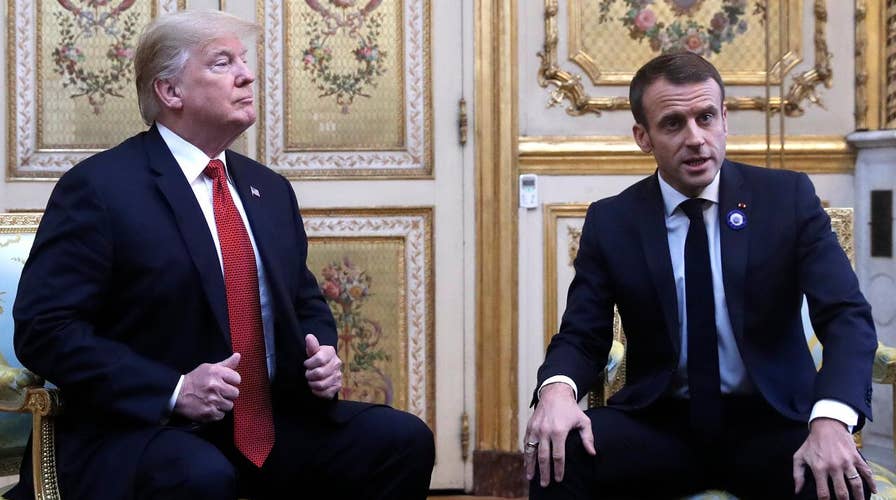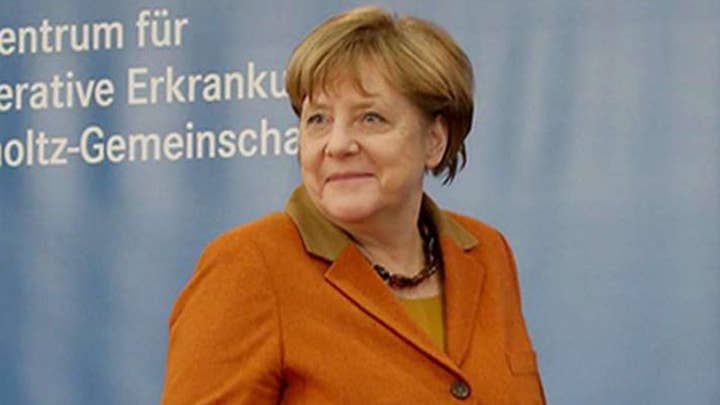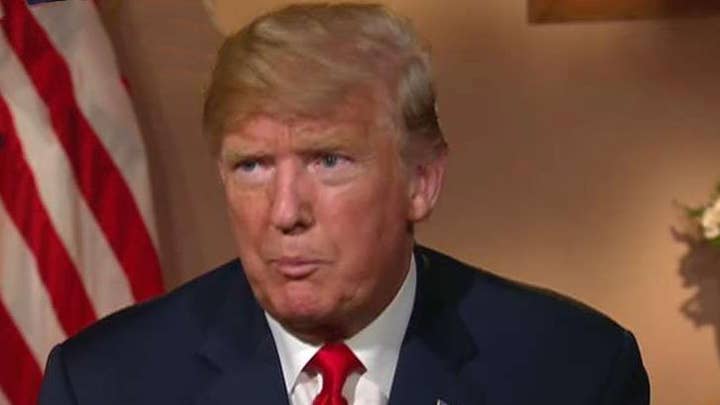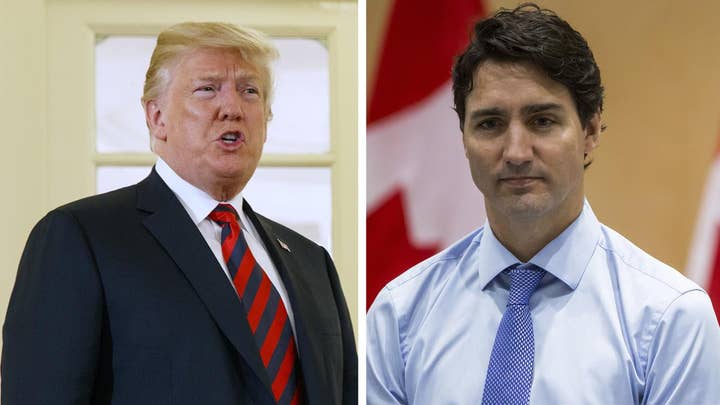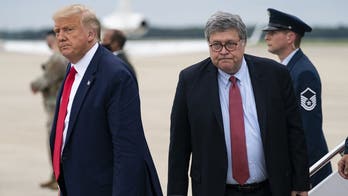Gen. Anthony Tata: Trump was right to slam Macron
Retired Army Brig. Gen. Anthony J. Tata calls the French president's remarks on defending Europe against the U.S, Russia and China 'hugely insulting to every veteran.'
President Trump’s tirade Tuesday against French President Emmanuel Macron is the latest salvo in an ongoing war the nationalist president is fighting against a globalist clique of international leaders who have sought to scold Trump over his “America First” policies.
Trump's attacks came after returning from a visit to France, marking the anniversary of the end of World War I. The president attacked Macron for his plans for a European army, urging the French to “pay for NATO” and praises nationalist sentiments in France -- urging the French to “Make France Great Again!”
It marks a turnaround in the pair’s relationship, which was once more of a “bromance” when Macron visited the U.S. in April -- where the two leaders held hands, referred to each other affectionately (Trump described the dashing Frenchman as “perfect”) and shared awkward hugs.
TRUMP SLAMS MACRON FOR LOW APPROVAL RATINGS, FRENCH SURRENDER TO THE NAZIS
Over the weekend, relations were much more chilly after Macron fired off a call for a European Army “to protect ourselves to China, Russia, and even the United States of America.” Trump, landing in France on Friday, called the idea “insulting” and referred again to the U.S’ NATO burden. During their bilateral meeting, pleasantries were exchanged, but a squeeze of Trump’s thigh from Macron went unreciprocated.
Trump’s reference to French nationalism appeared in response to Macron’s apparent swipe at Trumpian nationalism on Sunday where he called nationalism “a betrayal of patriotism.” As Trump has himself embraced the “nationalist” moniker, Macron has shaped himself as Europe’s defender of globalism.
TRUMP RIPS MACRON AFTER LANDING IN FRANCE OVER 'INSULTING' CALL FOR EUROPEAN ARMY
Tuesday’s attacks on Twitter included a note about Macron’s low approval ratings, France’s high unemployment rate and even French surrender during World War II, saying that the French were “learning German” by the time the U.S. intervened in the conflict.
But as Trump and Macron were feuding, other globalist leaders may have been breathing a sigh of relief that this time they weren’t in Trump’s sights. Both German Chancellor Angela Merkel and Canadian Prime Minister Justin Trudeau were present at the weekend’s commemoration, and have feuded with Trump before.
Merkel on Tuesday backed Macron’s call for a European army, but has so far not been called out by Trump. But Trump is no stranger to taking shots at the politician who he once said was “ruining Germany.”
In particular, Trump has frequently attacked Merkel's migration policies -- specifically her decision in 2015 to open up Germany’s borders in response to the Syrian migration crisis. In June he said that “the people of Germany are turning against their leadership as migration is rocking the already tenuous Berlin coalition.”
Merkel has struggled to stay in power, and was barely able to muster together a coalition to keep her in power after the 2017 federal elections. She has since announced her intention to step down as chancellor at the end of her term -- but it is possible that her rivals in Berlin may seek to oust her sooner.
She has also hit back at Trump on a number of occasions. After Trump said Germany was “captive to Russia” due to its energy connections to Russia, Merkel responded by saying how she remembered when Germany was controlled by the Soviet Union “and I am very happy that we are united in freedom as the Federal Republic of Germany.”
Closer to home, Trump has had a tense relationship with Trudeau, who Trump accused of being “very dishonest and weak” during trade negotiations in June as Trump tried to renegotiate NAFTA with Canada and Mexico.
Eventually a deal was done, but it was not after a diplomatic spat that started when Trudeau told reporters at the G7 summit in June that the tariffs were “kind of insulting” and that he “will not be pushed around.”
Trump as a consequence, refused to sign the G7 statement and hinted at other tariff measures against the U.S. neighbor to the north.
National Security Adviser John Bolton, on the same day, tweeted out a picture of Trump appearing to stare down world leaders, including Macron and Merkel. It was accompanied by a summary of Trump’s doctrine when it comes to negotiating with globalist leaders.
“Just another #G7 where other countries expect America will always be their bank,” he tweeted. The President made it clear today. No more.”
In September, at the United Nations -- where Trump hailed the benefits of nationalism -- Trump told reporters that he had declined to meet with Trudeau -- suggesting the feud had not ended.
